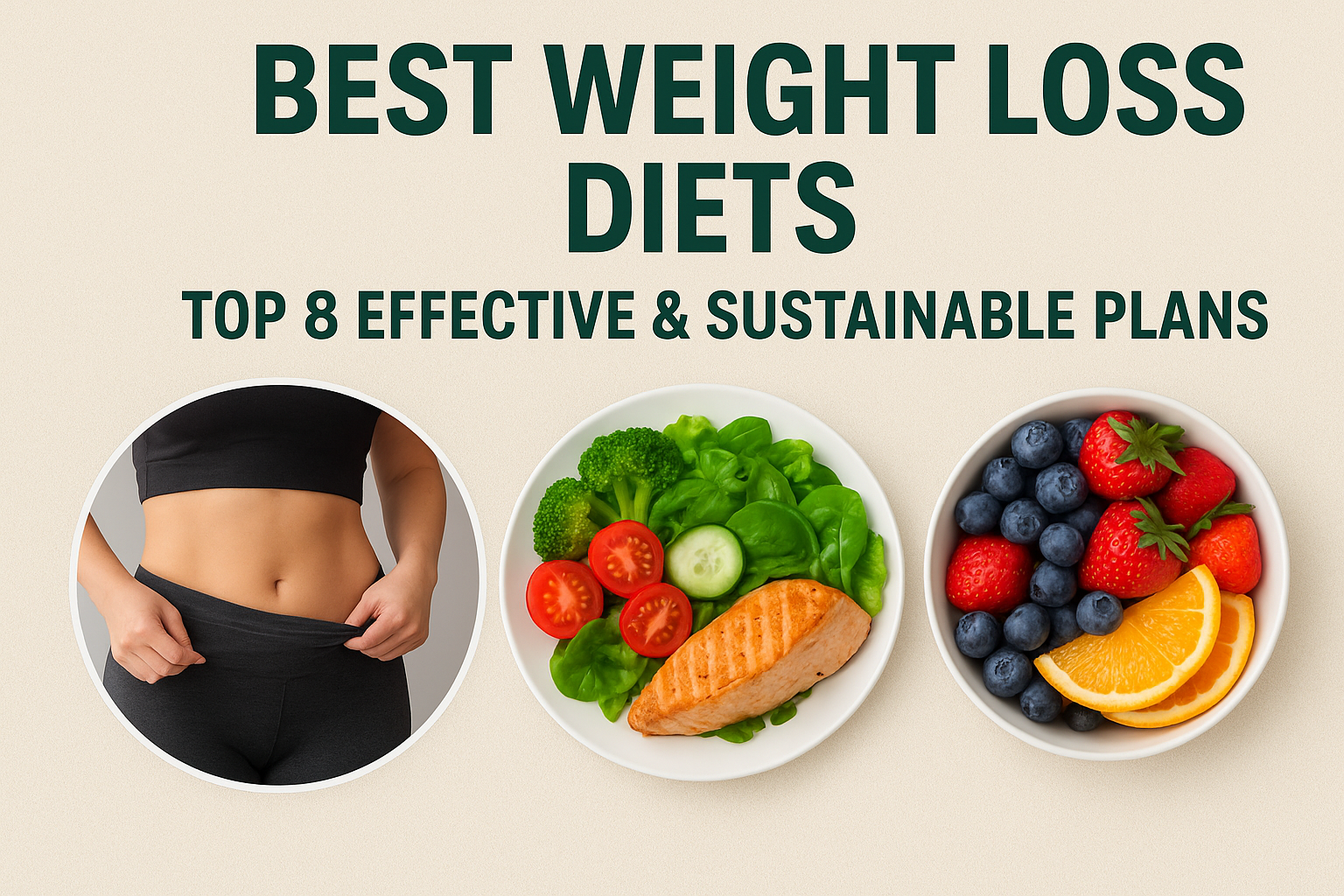Losing weight can often feel difficult, but with the right mindset and routine, it becomes much easier to manage. Instead of seeing it as a struggle, think of it as a chance to build healthier habits that last. A positive approach can help you stay motivated and make the journey more enjoyable.
A healthy diet plays a big role in this process. Choosing the right foods helps you lose fat without feeling deprived. Whole grains, lean proteins, fruits, and vegetables not only keep you full but also give your body the nutrients it needs to function properly. When your body is fueled well, you feel more energized and focused.
Eating well also helps balance hormones and supports mental clarity. It can lower your risk of serious health issues like heart disease and diabetes. So, weight loss isn’t just about looking better—it’s about feeling stronger, healthier, and more in control of your life.
In this comprehensive guide, we explore the Top 8 Best Weight Loss Diets based on effectiveness, sustainability, health benefits, and scientific backing. Whether you’re a beginner or someone who’s tried various diets before, there’s something here that could work for you.
Top Best Weight Loss Diet
Mediterranean Diet
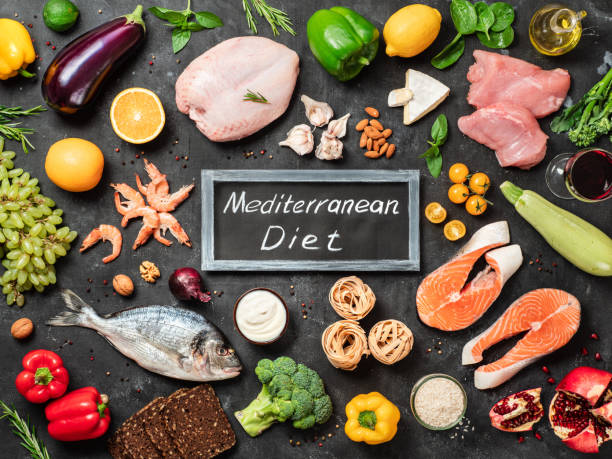
Inspired by the traditional eating habits of countries like Greece, Italy, and Spain, the Mediterranean Diet focuses on fresh, whole foods. It includes plenty of fruits, vegetables, whole grains, olive oil, nuts, and fish. This way of eating avoids processed foods and limits red meat and sugar, making it a natural and sustainable approach to health.
One reason the Mediterranean Diet is so popular is because it doesn’t feel restrictive. Meals are flavorful and satisfying, helping people stick to the plan long-term. It supports heart health, reduces inflammation, and can lower the risk of chronic diseases. Plus, it encourages enjoying food with others, which adds emotional well-being.
Many experts consider the Mediterranean Diet the best weight loss diet because it promotes balanced eating and helps reduce body fat over time. It supports gradual, steady weight loss and overall wellness.
How It Works: This diet emphasizes whole foods, healthy fats, lean proteins, and fresh vegetables.
Key Components:
High intake of fruits, vegetables, legumes, nuts, and whole grains
Healthy fats like olive oil and avocados
Moderate consumption of fish and poultry
Limited red meat and sugar
Wine in moderation (optional)
Weight Loss Benefits: Although it’s not specifically a “weight loss” diet, studies show the Mediterranean Diet can promote gradual and sustainable weight loss while improving heart health, reducing inflammation, and decreasing the risk of diabetes.
Pros:
Easy to follow
Heart-healthy
Focuses on real, unprocessed food
Cons:
Might not result in rapid weight loss
Can be high in calories if portion control isn’t observed
Low-Carb Diet (Including Keto)
Low-carb diets focus on reducing carbohydrate intake and increasing the amount of protein and healthy fats in daily meals. These diets limit foods like bread, rice, pasta, and sugary items, while encouraging vegetables, meats, eggs, and nuts. This shift in eating helps the body rely less on sugar for energy.
One of the most popular low-carb diets is the ketogenic, or keto, diet. It is the strictest form of low-carb eating, aiming to push the body into a state called ketosis. In ketosis, the body burns fat instead of carbohydrates for energy. This can lead to faster fat loss and improved mental clarity.
For many people, low-carb plans—especially keto—are considered among the best weight loss diet options. They help reduce hunger, boost metabolism, and support steady weight loss when followed consistently with proper meal planning.
How It Works: By cutting carbs, the body burns fat for energy instead of glucose. This reduces insulin levels and can lead to significant weight loss, especially in the early stages.
Key Components:
Elimination of sugar, grains, most fruits, and starchy vegetables
High intake of healthy fats (nuts, seeds, avocado, oils)
Moderate protein
Strict carb limit (keto = typically under 50g/day)
Weight Loss Benefits: Rapid weight loss, especially in the first few weeks. Many experience reduced appetite and improved energy levels.
Pros:
Fast results
Suppresses hunger naturally
May improve mental clarity and focus
Cons:
Requires discipline and planning
Keto flu (initial fatigue, headache)
Not ideal for long-term use in everyone
Intermittent Fasting (IF)

Intermittent Fasting is not a traditional diet but an eating pattern that alternates between periods of eating and fasting. Instead of focusing on what you eat, it emphasizes when you eat. Common methods include the 16/8 method (fasting for 16 hours, eating within 8) and the 5:2 method (eating normally for five days, reducing calories for two).
During the fasting phase, the body taps into stored fat for energy, which may lead to fat loss. This pattern helps regulate insulin levels, improve metabolism, and reduce calorie intake naturally. It also supports cellular repair and other health benefits beyond weight management.
Many people view Intermittent Fasting as the best weight loss diet alternative because it’s simple, flexible, and easy to maintain. It helps reduce snacking, supports mindful eating, and can lead to steady, long-term weight loss without strict food rules.
Popular Methods:
16/8: Fast for 16 hours, eat during an 8-hour window
5:2: Eat normally for 5 days, restrict calories to 500–600 for 2 days
Alternate-day fasting
How It Works: Fasting triggers cellular repair, increases growth hormone levels, and improves insulin sensitivity. When combined with healthy eating, it can result in noticeable fat loss.
Weight Loss Benefits: Studies show intermittent fasting can be as effective as traditional calorie restriction for weight loss and fat loss—especially visceral fat.
Pros:
Flexible and easy to incorporate into any lifestyle
No food restrictions
Can improve metabolic health
Cons:
Hunger and low energy during fasting periods (at first)
Not suitable for everyone (e.g., people with diabetes or eating disorders)
Plant-Based Diet (Vegan or Vegetarian)
Plant-based diets center around eating whole, natural foods that come from plants, such as fruits, vegetables, whole grains, legumes, nuts, and seeds. These diets limit or completely avoid animal products like meat, dairy, and eggs. The goal is to eat more fiber-rich and nutrient-dense foods that support overall health.
This way of eating helps improve digestion, lower cholesterol, and reduce the risk of chronic conditions like heart disease and diabetes. Plant-based diets are also low in calories and high in fiber, which makes you feel full longer and can lead to natural weight loss over time without strict calorie counting.
For many, a plant-based approach is seen as the best weight loss diet because it’s sustainable, nutrient-rich, and supports fat loss in a healthy way. It also promotes long-term wellness and can easily be adjusted to suit individual preferences and lifestyles.
How It Works: Plant-based diets are typically lower in calories and fat and higher in fiber, which helps with satiety. Eliminating processed and animal-based foods reduces caloric density without sacrificing volume.
Types:
Vegan: Excludes all animal products
Vegetarian: May include dairy and/or eggs
Flexitarian: Mostly plant-based, but allows occasional meat
Weight Loss Benefits: Consuming more fiber and fewer calories helps people lose weight naturally, especially when processed foods are minimized.
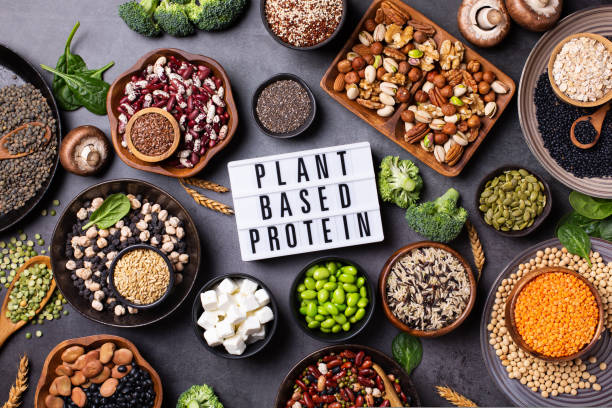
Pros:
High in vitamins, antioxidants, and fiber
Supports overall health and longevity
Environmentally friendly
Cons:
Risk of nutrient deficiencies (B12, iron, omega-3)
Social and cultural limitations
May require supplements
DASH Diet (Dietary Approaches to Stop Hypertension)
The DASH Diet, which stands for Dietary Approaches to Stop Hypertension, was originally created to help lower high blood pressure. It emphasizes eating nutrient-rich foods such as fruits, vegetables, whole grains, lean proteins, and low-fat dairy, while reducing salt, red meat, and added sugars.
Although its main goal is heart health, the DASH Diet also supports weight loss as a natural side benefit. Because it focuses on balanced, portion-controlled meals filled with fiber and lean nutrients, it helps reduce overall calorie intake and encourages healthier food choices without feeling too restrictive.
Many people now consider the DASH Diet one of the best weight loss diet options. It promotes gradual, lasting results by encouraging healthy habits, making it ideal for long-term success. It also improves blood pressure and cholesterol, supporting overall wellness alongside fat loss.
How It Works: It emphasizes low sodium intake, along with balanced meals rich in fruits, vegetables, whole grains, and lean proteins.
Key Components:
Low sodium intake (1,500–2,300 mg/day)
Rich in potassium, magnesium, and calcium
Limits added sugars and saturated fats
Weight Loss Benefits: The nutrient-dense, low-calorie structure of the DASH Diet naturally supports weight loss when combined with exercise.
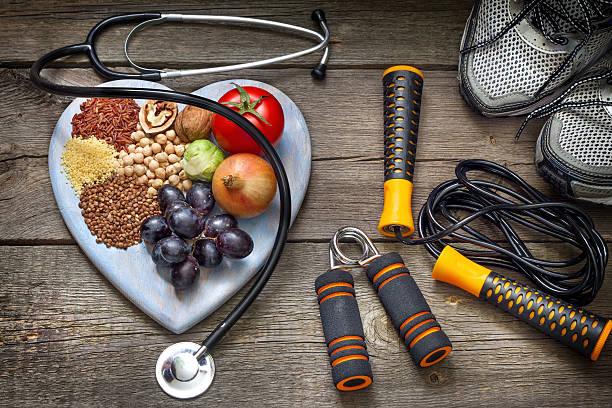
Pros:
Scientifically backed
Heart and kidney friendly
Encourages portion control
Cons:
Requires meal planning
Less flexible for those who eat out frequently
Paleo Diet
The Paleo Diet is based on the idea of eating like our Paleolithic ancestors. It focuses on foods that could be hunted or gathered, such as meat, fish, fruits, vegetables, nuts, and seeds. The goal is to return to a more natural way of eating by avoiding grains, dairy, legumes, and processed foods.
By cutting out processed and high-sugar items, the Paleo Diet helps reduce inflammation, support digestion, and balance blood sugar levels. Many people report feeling more energetic and satisfied after meals. It also encourages high protein intake, which supports muscle growth and fat burning.
Because it promotes whole foods and reduces empty calories, the Paleo Diet is often considered a best weight loss diet for those seeking lasting results. It helps people lose weight naturally while improving overall health and creating healthier eating habits over time.
How It Works: It removes all grains, legumes, dairy, and processed foods, focusing instead on lean meats, fish, fruits, vegetables, nuts, and seeds.
Weight Loss Benefits: By avoiding high-calorie processed foods and refined sugars, the Paleo Diet supports weight loss and improves blood sugar control.
Pros:
High protein intake supports muscle retention
Low in sugar and processed foods
Improves gut and metabolic health
Cons:
Restrictive
Can be expensive
Eliminates entire food groups
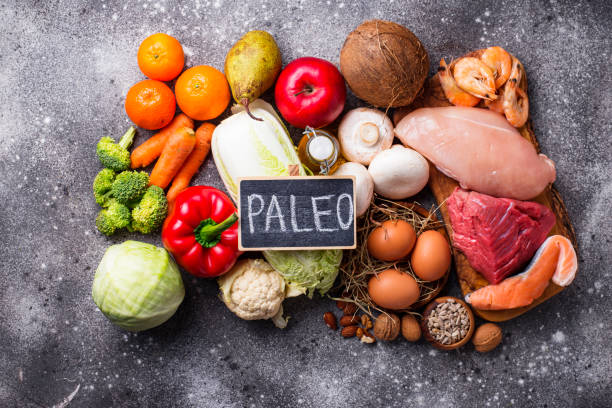
WW (Weight Watchers)
WW, formerly known as Weight Watchers, uses a flexible points-based system to help guide food choices. Instead of counting calories, each food is assigned a SmartPoints value based on its protein, sugar, saturated fat, and calorie content. Healthier foods have lower points, while high-sugar or high-fat foods have higher values.
Members are given a daily and weekly points allowance, encouraging them to make smarter decisions without giving up their favorite foods. WW also offers support through group meetings, coaching, and an easy-to-use mobile app for tracking meals, activity, and progress.
WW is often considered a best weight loss diet because it promotes balance, flexibility, and long-term success. It helps people build healthy habits without extreme restrictions, making it easier to stick with over time. Many find it effective for steady weight loss and maintaining a healthier lifestyle.
How It Works: Members are given a daily points budget and encouraged to stay within it. The system encourages healthier food choices without banning any specific food.
Weight Loss Benefits: Studies show WW is effective for gradual, long-term weight loss. The program’s structure promotes accountability and mindful eating.
Pros:
Flexible and customizable
Includes community support and coaching
Sustainable long-term
Cons:
Requires tracking
Monthly fees
Results may vary depending on adherence
Volumetrics Diet
The Volumetrics Diet, created by Dr. Barbara Rolls, focuses on the energy density of foods. This approach encourages eating foods that are low in calories but high in volume, such as fruits, vegetables, soups, and whole grains. The goal is to help you feel full and satisfied while naturally eating fewer calories.
By filling up on low-energy-dense foods, you can reduce hunger and avoid overeating. The diet doesn’t eliminate food groups but teaches how to choose foods that provide more bulk for fewer calories. This makes it easier to stay on track without feeling deprived or hungry.
Many consider the Volumetrics approach a best weight loss diet because it promotes lasting habits and steady progress. It helps people enjoy larger portions of healthy foods, making it easier to lose weight while feeling full, energized, and in control of their eating.
How It Works: By eating foods with high water and fiber content (like fruits, soups, and vegetables), you can feel full without consuming too many calories.
Weight Loss Benefits: This approach helps manage hunger and promotes a feeling of fullness, leading to natural calorie reduction and weight loss.
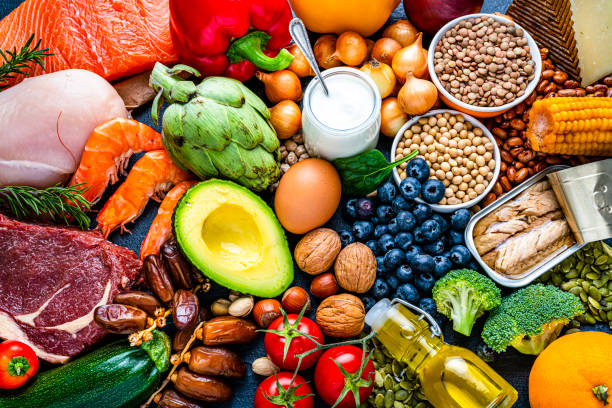
Pros:
Encourages healthy eating habits
Focuses on satiety and portion control
Backed by scientific research
Cons:
Requires knowledge of food density
May not work well for those who prefer calorie-dense meals
Comparison Table
| Diet | Speed of Weight Loss | Ease of Adherence | Nutritional Balance | Long-Term Sustainability |
|---|---|---|---|---|
| Mediterranean | Moderate | High | Excellent | Very High |
| Low-Carb/Keto | Fast | Moderate | Good (with planning) | Moderate |
| Intermittent Fasting | Moderate | High | Varies by meal | High |
| Plant-Based | Moderate | Moderate | Excellent | High |
| DASH | Moderate | Moderate | Excellent | High |
| Paleo | Moderate | Moderate | Good | Moderate |
| WW | Slow to Moderate | High | Good | High |
| Volumetrics | Moderate | High | Excellent | Very High |
How to Choose the Right Diet for You
The best diet is the one you can stick to consistently. When choosing a weight loss diet, consider:
Lifestyle compatibility: Can you see yourself following the plan for months or even years?
Health conditions: Do you have medical issues like diabetes, high blood pressure, or kidney concerns?
Budget: Some diets (like keto or paleo) can be more expensive due to meat and specialty items.
Food preferences: Do you enjoy the foods the diet promotes?
Conclusion

Choosing the best weight loss diet ultimately depends on your individual needs, preferences, and lifestyle. While no single diet works for everyone, it’s important to focus on sustainable, health-promoting habits that can be maintained long-term. Whether you opt for the heart-healthy Mediterranean Diet, the fast results of a Low-Carb/Keto approach, or the flexibility of Intermittent Fasting, the key is consistency.
The best weight loss diet for you should fit seamlessly into your routine and provide a balance of essential nutrients. Consider factors such as ease of adherence, health conditions, and food preferences when making your decision. Remember, the most effective weight loss plans are those that encourage healthy eating patterns, regular physical activity, and mindfulness. In the end, sustainable weight loss is about making smart, informed choices that you can stick with for a lifetime.
FAQs
- What is the best weight loss diet for beginners ?
The best weight loss diet for beginners often includes simpler, more flexible plans like the Mediterranean Diet or Intermittent Fasting. These approaches emphasize whole foods, portion control, and sustainable habits, making them easier to adopt and maintain. - Can the best weight loss diet help with long-term weight management ?
Yes, the best weight loss diet should promote not only short-term weight loss but also long-term weight management. Diets like the Mediterranean or DASH Diet focus on balanced nutrition, helping you maintain a healthy weight over time. - How do I know if the best weight loss diet is right for me ?
The best weight loss diet for you depends on your lifestyle, health goals, and personal preferences. Consider factors like ease of adherence, any medical conditions, and whether the diet aligns with your tastes and routines. - Is the keto diet the best weight loss diet for fast results ?
The keto diet is popular for fast weight loss as it shifts the body into ketosis, burning fat for fuel. However, it’s essential to consider whether it’s sustainable for you long-term before deciding if it’s the best weight loss diet for your needs. - Are plant-based diets the best weight loss diet for overall health ?
Plant-based diets can be an excellent choice for weight loss and overall health. They are nutrient-dense, lower in calories, and rich in fiber, which supports satiety and weight management, making them one of the best weight loss diets for long-term health benefits.

